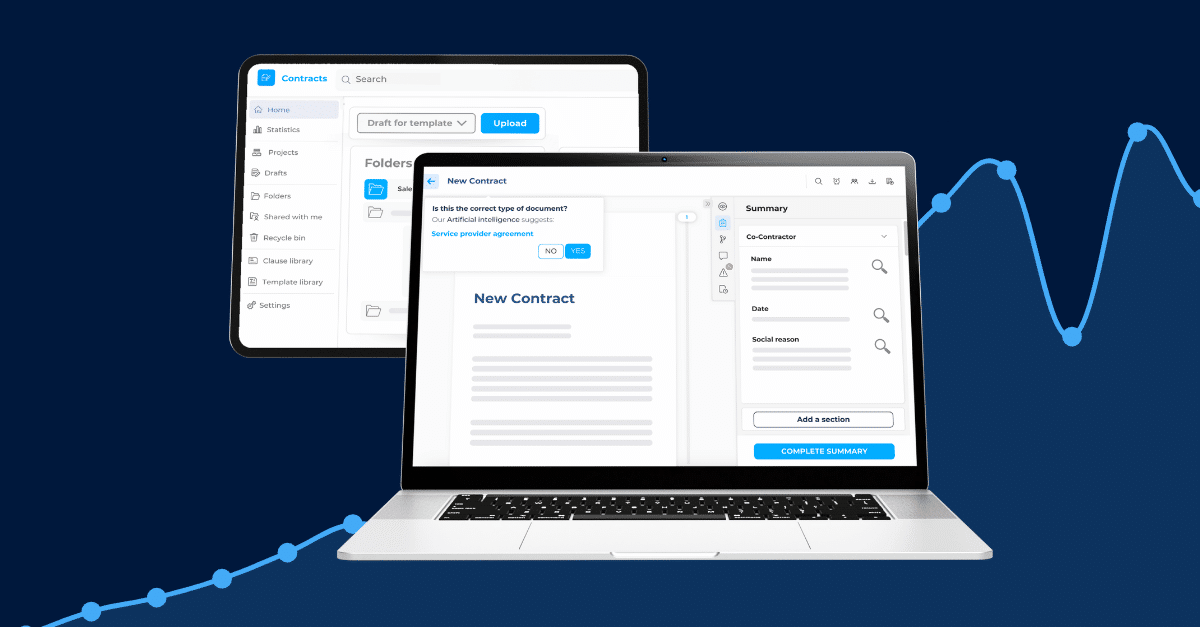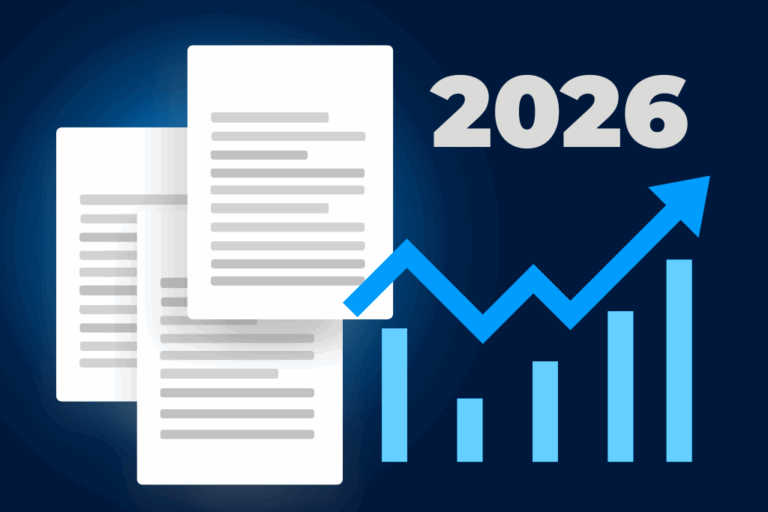A Contract Lifecycle Management (CLM) solution can be a great help to purchasing professionals.
Delays in orders and payments, difficulties in obtaining supply chain information… The negative effects are manifold. But analyzing contracts and managing contractual risks can help to remedy them.
In this article, we take a look at CLM solutions and how they can help your purchasing department.
What is a contract lifecycle management (CLM) solution?
Accelerating team productivity through technology – that’s what’s at stake in the digital transformation of companies, and tools that enable remote collaboration, automate a number of tasks or measure actions precisely are all part of this approach.
Contract lifecycle management solutions are just such a tool. They enablecompanies to optimize their contractual processes.
Our CLM solution uses a cloud-based SaaS platform to analyze company contracts and extract key content – clauses, dates, etc. – from them. Following a semantic analysis of this content, we store contracts in a fully secure environment, allowing them to be searched, modified, validated and signed.
What is SaaS software? SaaS software is an entirely secure solution that can be accessed remotely. It enables all teams, whether legal or operational, to work together on the company’s contracts.
CLM solution for the purchasing department: why is it useful?
Controlling the legal risks of contracts, securing and accelerating contractualization, optimizing margins – these are just some of the tasks carried out by purchasing departments.
A contract lifecycle management solution, like ours, intervenes at every stage of the contracting process. As a result, it offers tremendous visibility and can help anticipate potential obstacles linked to contractual commitments with suppliers.
What’s more, it eliminates repetitive tasks, such as having to fill in all the fields of a contract by hand, copying and pasting information.
Benchmarks from IACCM, the global association for contract management, estimate that between a quarter and a third of companies struggle to :
At DiliTrust, we know that the best contracts work through robust processes, policies and risk management. That way, when various external conditions change, the underlying contracts can translate those changes to the parties involved, and give them real decision support.
And therein lies the fundamental problem: if you don’t have a digitalized contract repository full of“smart” contracts that model the richness and complexity of value exchange between parties in commercial relationships in a risky world, you’ll be driving blind and exposing yourself to risk.
1. Secure and accelerate contractualization with validation workflows
A CLM can enable buyers to set up workflows, i.e. validation circuits. It’s a bit like an automatically-triggered path (with predefined validators) that the contract must absolutely follow. In this way, the contract is automatically and compulsorily validated by the right people in-house, before being sent for signature.
Did you know? DiliTrust enables its users to sign documents electronically via integrated tools such as Docusign and Dropbox Sign. Purchase orders are signed faster!
2. Enhance contract compliance with tailored functionalities
“80% of buyers don’t have a full grasp of the legal terms and structure of their contracts.“
McKinsey
And yet, reinforcing the compliance of new contracts is one of their missions! In this respect, technology can provide a significant boost.
A contract management solution enables legal teams to create contract templates for direct use by different teams. This feature ensures that buyers always have access to compliant contracts.
DiliTrust also offers a collaborative clausier, a sort of library containing all the clauses validated by the legal department (security clause, commitment clause, cybersecurity clause, termination clause), which can be easily found thanks to an intelligent search engine. This further enhances contract compliance, and makes it easier for buyers to compare clauses.
3. Keep track of supplier obligations without missing a deadline
“60% of supplier contracts are renewed automatically without prior analysis and decision.“
University of Aberdeen, 2021
However, on a daily basis, purchasing professionals need to :
With DiliTrust, their contracts are centralized in a single interface, and are always up to date in a secure supplier contract database. You can consult them easily, even remotely.
To avoid penalties and tacit renewals, you can set automatic alarms on contracts. This way, you’re notified in advance of contract expiry dates, and can take the necessary steps before tacit renewals.
4. Analyze and improve supplier performance
How can you mitigate supply chain risks and make the right decisions? With DiliTrust, it’s easy to track and analyze contract data.



